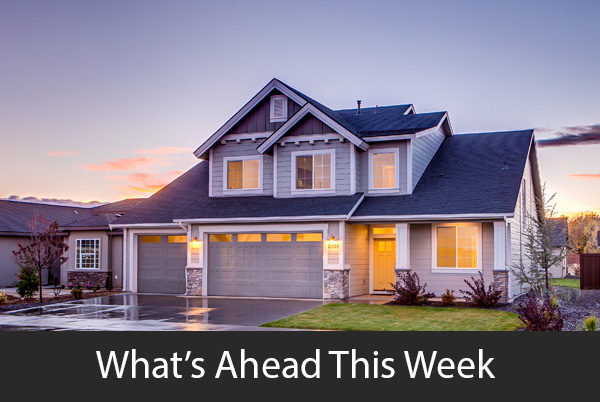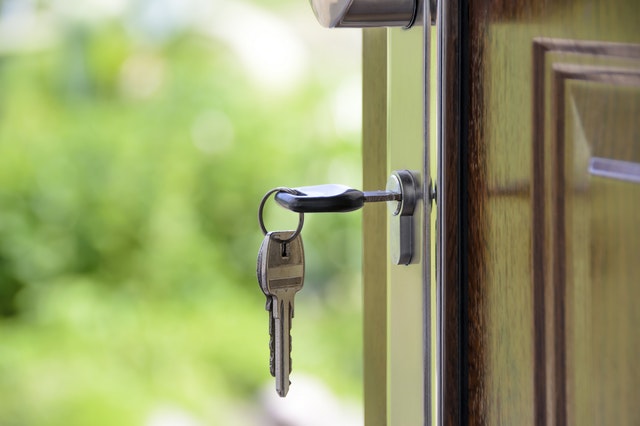What’s Ahead For Mortgage Rates This Week – January 22nd, 2019
 Last week’s economic reports included National Association of Home Builders’ Housing Market Index, the Federal Reserve’s Beige Book report and the University of Michigan’s Consumer Sentiment Index. Weekly readings on mortgage rates and first-time jobless claims were also released.
Last week’s economic reports included National Association of Home Builders’ Housing Market Index, the Federal Reserve’s Beige Book report and the University of Michigan’s Consumer Sentiment Index. Weekly readings on mortgage rates and first-time jobless claims were also released.
Commerce Department readings on housing starts and building permits issued were delayed due to the federal government shutdown, which continued and became the longest government shutdown on record.
NAHB: Builder Confidence Rises Amid Headwinds
Home builder confidence rose two points in January according to the National Association of Home Builders. Builder concerns over rising construction costs and tariffs on building materials were balanced by falling mortgage rates.
Builders felt pressure to create more affordable homes and to offer incentives to buyers that could create more sales. Building new homes is the only solution to the long-entrenched shortage of homes; the Home builder index is closely watched by housing and mortgage industry pros as an indicator of future home inventories and mortgages.
Federal Reserve Beige Book Shows Concern Over Current Economic Conditions
The Federal Reserve’s Beige Book report, which recounts Federal Reserve business contacts’ views of the economy included information from eight of twelve Federal Reserve districts. Business leaders cited higher costs including rising tariffs and costs for supplies. Business growth was slower during December and early January.
Additional concerns cited by the Fed’s business contacts included the government shutdown and conflicts over trade and political policies. Fed contacts reported mixed results with passing on higher costs to consumers. This suggests that consumers are “tapped out,” or are reining in spending among worries over the shutdown and rising costs.
Mortgage Rates Mixed, New Jobless Claims
Freddie Mac reported mixed activity on mortgage rates last week as the average rate for 330-year fixed rate mortgages was unchanged at 4,45 percent. The average rate for a 15-year fixed rate mortgage ticked down one basis point to 3.88 percent. The average rate for 5/1 adjustable rate mortgage rose four basis points to 3.37 percent. Discount points averaged 0.40 percent for fixed rate mortgages and 0.30 percent for 5/1 adjustable rate mortgages.
Fewer first-time jobless claims were filed last week with 213,000 new claims filed as compared to expectations of 220,000 new claims filed and 216,000 first-time claims filed in the prior week.
The University of Michigan released its consumer confidence index for January; consumer uncertainty about economic conditions and the government shutdown caused January’s reading to fall nearly eight points to 90.70. from December’s reading of 98.30 Analysts expected a reading of 97.50, but this may have been based in hopes that the government shutdown would end.
What‘s Ahead
This week’s economic reports are limited by Monday’s holiday and the ongoing government shutdown. Expected readings include sales of new and pre-owned homes along with weekly readings on mortgage rates and new jobless claims.

 There comes a time in every young homeowner’s life when they need a bigger house. When you buy a starter home, it’s unlikely that will be your forever home. But how do you know when it’s time to spend the time and effort to upgrade to a larger home?
There comes a time in every young homeowner’s life when they need a bigger house. When you buy a starter home, it’s unlikely that will be your forever home. But how do you know when it’s time to spend the time and effort to upgrade to a larger home? After two months of declining builder confidence, the National Association of Home Builders Housing Market Index gained two points in January with a reading of 58. Component readings of the HMI were also higher with builder confidence in current market conditions rose two points to an index reading of 63. Builder confidence in housing market conditions over the next six months rose three points to 64.
After two months of declining builder confidence, the National Association of Home Builders Housing Market Index gained two points in January with a reading of 58. Component readings of the HMI were also higher with builder confidence in current market conditions rose two points to an index reading of 63. Builder confidence in housing market conditions over the next six months rose three points to 64.